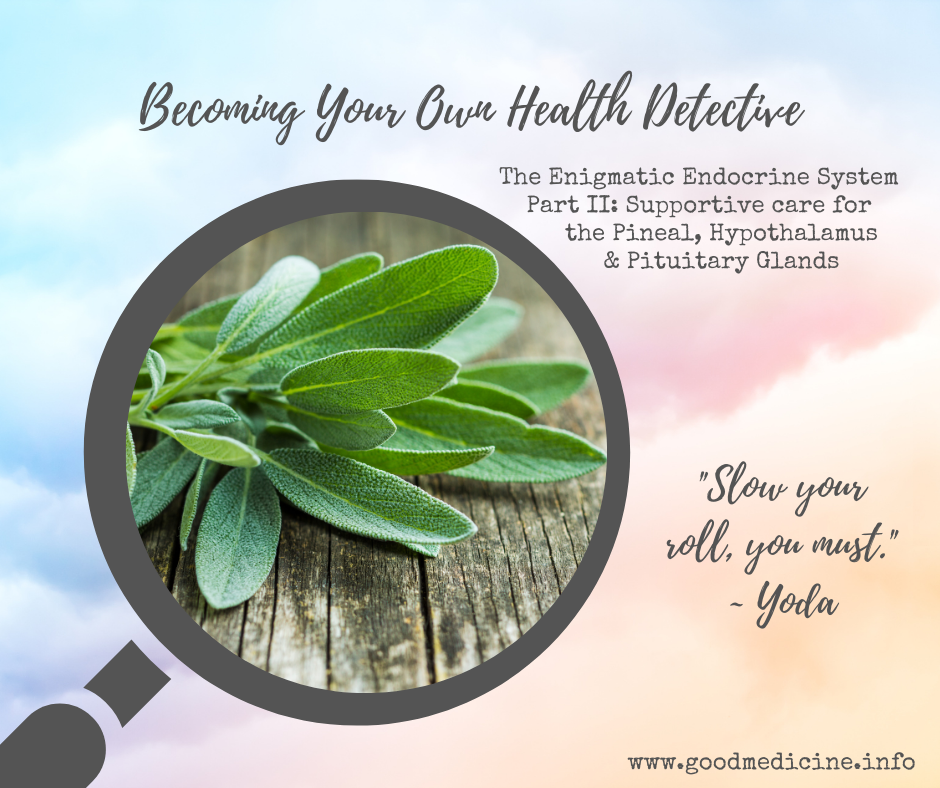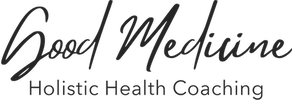The Enigmatic Endocrine System Part II: Supportive care for the Pineal, Hypothalamus, and Pituitary Glands
If I am able to drive home one thing in all that I share, it’s this: The body, mind, and spirit are interconnected, and if one is damaged, the other will suffer. Likewise, if nurturing, support, and healing do not occur within all three: mind, body, and spirit, healing will be impaired. Some of the deepest wounds to the physical body will never be seen by the human eye because of the trauma to the mind and spirit. Trauma dealt to the mind is not the same as trauma to the  brain, though both may be affected. Does that make sense?
brain, though both may be affected. Does that make sense?
There are many physical ways to support healthy pineal, hypothalamus, and pituitary gland function, but the most important of all is to become proficient in the skills required to overcome traumatic stress.
For a gland so tiny, there are books and even a journal (The Journal of Pineal Research) devoted to the study of the small ( but mighty) pineal gland. Traumatic stress appears to affect the pineal gland in profound ways that man and his science may never fully comprehend.
Here is what we do know:
Traumatic stress disrupts the pineal gland which in turn also disrupts melatonin.
Rene Descartes (French philosopher, mathematician, and scientist of the 16th century) described the pineal gland as “the seat of the soul”. He postulated that what we experience on “the outside of us” becomes an integral part of the mind (not to be confused with the physical brain). He was pretty much over the target .
.
Many current day studies suggest that repeated stress or traumatic stress experiences may disturb mind integrity, memory, and experience.
Melatonin (in addition to regulating our circadian rhythm) has a role in the synchronization of memory. When the pineal gland is damaged by traumatic stress over time, memory formation and consolidation, cognition, and emotional processes may be altered.
Thankfully, love, community, and social connectedness have the power to influence, improve, and overcome the effects of traumatic stress.
Do not underestimate the power of a close knit community of friends 

 ….. This is your first and most important “how to” take care of your endocrine system…. Find your tribe and love them ….. And (importantly) also let them love you
….. This is your first and most important “how to” take care of your endocrine system…. Find your tribe and love them ….. And (importantly) also let them love you  .
.
The Holy Spirit dwells within all who call to Him. The Holy Spirit is also our comforter and healer and guide. Don’t underestimate, undervalue, or decline this gift from God.
Real Solutions:
Physically, there are a myriad of ways to support the brain’s glandular system:
One in eight women will develop a thyroid problem at some point in their lifetime. (It’s not quite that high in men). While many thyroid disorders have root cause found in the thyroid itself, as Yoda said…. “Slow your roll [downhill], you must.” The thyroid is a precision organ, and will not be able to adequately perform if the endocrine glands of the brain (and elsewhere) do not work well. Their work is worthy of our TLC, and giving it the nourishment and attention it needs to perform optimally. Each one of us is a finely tuned, amazingly made unique creation, and each body part is a part of a bigger design working in tandem.
xoxo~ liz
https://goodmedicine.info/my-book/ (it’s here! We’re keeping it at presale price for just a few more days)

